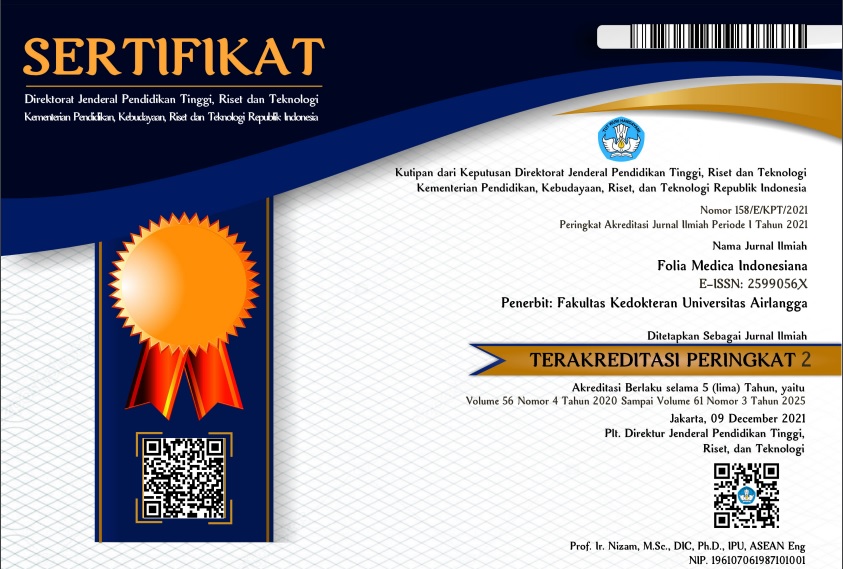Abstract
Various tyrosine kinase inhibitor (TKI) drugs have been widely used as therapy for cancer that has EGFR mutations, or abnormal EGFR activation. However, patients who have a mutation in the gene that activates EGFR only benefit from EGFR-TKI therapy for less than one year, because after that resistance occurs. In the management of patients according to NCCN 2017, patients who experience progress after receiving TKI as the first-line therapy must undergo an examination to identify the presence of T790M mutation. If the T790M mutation is positive, the choice of therapy that needs to be provided is the third generation (Osimertinib). Many recent studies have proved the significance of the effectiveness and response of Osimertinib therapy in lung cancer with EGFR T790M mutation. We reported the management of a pulmonary adenocarcinoma patient with positive EGFR mutation who had received first-line EGFR TKI who had progressive disease and T790M mutation in Dr. Seotomo Hospital. The patient finally received Osimertinib through an Early Access Program with a therapeutic response that improved significantly.
Keywords
Tyrosine kinase inhibitor, TKI resistance, T790M mutation, progressive disease, osimertinib
First Page
239
Last Page
245
DOI
10.20473/fmi.v55i3.15509
Publication Date
10-3-2019
Recommended Citation
Sahrun, Sahrun and Wulandari, Laksmi.
2019
Case report: Management of Progressive Lung Cancer Patients after First-Line EGFR Tyrosine Kinase Inhibitor Therapy.
Folia Medica Indonesiana. 55,
3 (Nov. 2024 ), 239-245.
Available at: https://doi.org/10.20473/fmi.v55i3.15509






